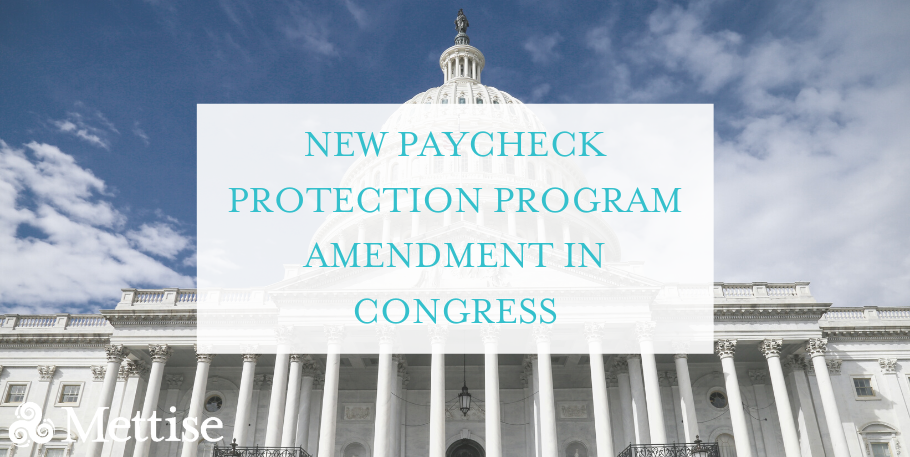A bipartisan measure amending the Paycheck Protection Program (PPP) will be voted on next week in the House of Representatives.
Amending the Paycheck Protection Program to assist small businesses with more forgiveness has bipartisan support in both the House and the Senate. Speaker Pelosi announced yesterday that next week, the House of Representatives will vote on a H.R. 6886, the Paycheck Protection Flexibility Act. Introduced by Representative Dean Phillips (D-MN) and Representative Chip Roy (R-TX) the legislation will:
- Allow forgiveness for expenses beyond the 8-week covered period. The 8-week timeline does not work for local businesses that are prohibited from opening their doors, or those that will only be allowed to open with restrictions. Businesses need the flexibility to spread the loan proceeds over the full course of the crisis until demand returns. Otherwise, employees will simply be furloughed at the expiration of the 8 weeks. We want employers to be able to keep their employees on the payroll, not furlough them without pay or terminate them entirely.
- Eliminate restrictions limiting non-payroll expenses to 25% of loan proceeds. In order to survive, businesses must pay fixed costs. The PPP loans require that 75% of the loan go to payroll. For many businesses, payroll simply does not represent 75% of their monthly expenses and 25% does not leave enough to cover mortgage, rent, and utilities. Retaining employees is not possible if a business cannot retain their physical location.
- Eliminate restrictions that limit loan terms to 2 years. According to the American Hotel and Lodging Association, full recovery for that industry following both the September 11, 2001 terrorist attacks and the 2008 recession took more than two full years. This is the same for many other industries. If the past is any indication of the future, it will take many businesses more than two years to achieve sufficient revenue to pay back the loan.
- Ensure full access to payroll tax deferment for businesses that take PPP loans. The purpose of PPP and the payroll tax deferment was to provide businesses with capital to weather the crisis. Receiving both should not be considered double-dipping. Businesses need access to both sources of cash flow to survive.
- Extend the rehiring deadline to offset the effect of enhanced Unemployment Insurance. To receive loan forgiveness under PPP, a business must rehire employees by a deadline of June 30, 2020. However, the enhanced Unemployment Insurance created through the CARES Act is higher than the median wage in 44 states. Many businesses have reported an inability to rehire employees because they are making more on Unemployment than they made working. To mitigate this unintended consequence, the deadline to rehire employees under PPP should be extended to align with the expiration of enhanced Unemployment Insurance.
The Mettise Group will continue to post updates to bring you the most current information.

Recent Comments